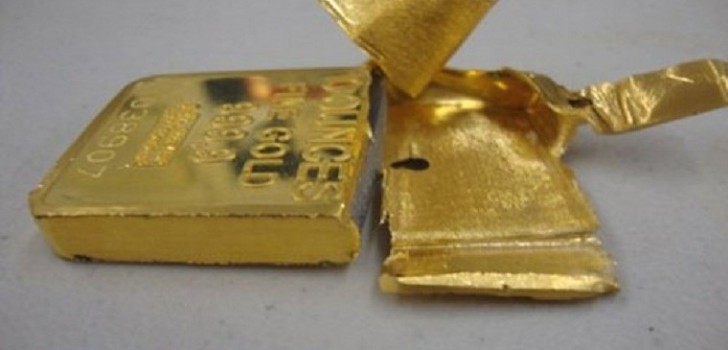In a world first, Russia’s Admiralty Bank has been found to be passing off fake gold – gold-plated metal – designed to fool bank regulators into believing it was real gold. The effort was designed to mask the bank’s true financial state according to online media reports. Authorities have now revoked the bank’s license.
Experts say fake gold, usually gold-plated tungsten, has been found to have been used by some of Europe’s larger gold foundries and the occasional big private gold dealer, but this is the first time “to date” that a bank has been found trying to pass off fake gold.
The scam was discovered when Russian government banking officials were looking into allegations that Admiralty Bank’s reserve held precious metals that were not what the Bank was reporting.
A government source said that auditors had checked gold bars in storage vaults and had found the gold-painted metal.
The reports said that as of August 1st the Bank had reported it’s precious metals reserves at $6 million.
The source went on to confirm the real figure was “significantly less”.
Another source told the media that shortly before the Admiralty fraud had been made public, and its license withdrawn, the Bank had offered its corporate clients the ability to withdraw all their funds with a 30 percent fee attached.
Although Admiralty Bank is relatively small, ranking 289th place among Russian banks in terms of assets, it opens the question of how many other banks were running similar scams, not only in Russia but globally.
Financial experts are also questioning what such scams mean for the value of gold itself, which has been running at an all time high in value in recent times, because of a major global shortage of the precious metal.
They ask if the Admiralty bank fraud is found to be part of an international trend, what will happen as banks are forced to buy real gold on the open market to replace fake gold they may be holding in their reserves?
Russia’s Central Bank has yet to comment on the matter.
Stay Connected